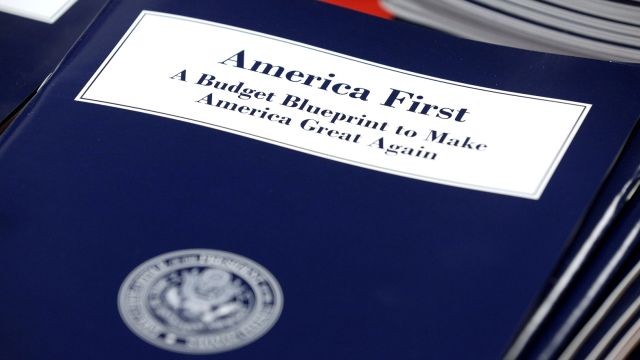Regular car maintenance is essential for keeping your vehicle running smoothly and ensuring its longevity. While modern cars are designed to last for many years, neglecting routine maintenance can lead to costly repairs, breakdowns, and even safety issues. Below are some essential maintenance tasks every car owner should follow.
1. Engine Oil and Filter Change
One of the most important aspects of car maintenance is regular oil changes. Engine oil lubricates the engine’s moving parts, reducing friction and preventing damage. Over time, oil can become dirty and less effective, leading to engine wear and potential breakdowns.
Typically, oil should be changed every 5,000 to 7,500 miles, depending on your car’s make and model. Additionally, the oil filter should be replaced at the same time to ensure that the oil remains clean.
2. Tire Maintenance
Tires are a critical component of vehicle safety, so they need regular attention. Tire maintenance involves checking tire pressure, ensuring proper alignment, and rotating the tires to promote even wear.
- Tire Pressure: Low tire pressure can lead to decreased fuel efficiency and unsafe driving conditions. Check tire pressure monthly, and refer to your car’s manual for the recommended PSI.
- Tire Rotation: Tires should be rotated every 6,000 to 8,000 miles to prevent uneven wear and ensure better handling and traction.
- Alignment and Balancing: Misaligned or unbalanced tires can cause uneven tire wear, poor handling, and increased fuel consumption. Have your tires aligned and balanced at least once a year or if you notice unusual vibrations.
3. Brake System Inspection
Your vehicle’s braking system is essential for safety, and it should be checked regularly. Brakes consist of pads, rotors, and fluid, all of which wear over time.
- Brake Pads: Brake pads should be replaced when they are worn down to about 3 millimeters or less. If you hear squealing or grinding noises, it’s time to replace them.
- Brake Fluid: Brake fluid should be checked regularly and replaced every 2 years or according to your vehicle’s specifications. Low brake fluid can affect braking performance and potentially lead to brake failure.
4. Battery Care
Your car battery is responsible for starting the engine and powering electrical systems. A dead battery can leave you stranded, so regular inspection is crucial.
- Battery Terminals: Check for corrosion around the battery terminals and clean them if necessary.
- Battery Health: Car batteries typically last 3 to 5 years, so if your battery is approaching this age, consider having it tested. If it’s weak or showing signs of failure, replace it to avoid sudden breakdowns.
5. Fluid Levels and Cooling System
In addition to oil and brake fluid, your car has several other important fluids that need to be checked and topped off regularly:
- Coolant/Antifreeze: The coolant helps regulate your engine’s temperature, preventing it from overheating. Check the coolant level at least once a month and top it up as needed. Overheating can cause severe engine damage, so be sure to follow the manufacturer’s guidelines for coolant maintenance.
- Transmission Fluid: Regular transmission fluid checks help ensure smooth shifting and prevent transmission failure. Depending on the vehicle, transmission fluid should be checked every 30,000 to 60,000 miles.
- Power Steering Fluid: Power steering fluid is essential for easy steering. Check the fluid level periodically and top it up as needed.
6. Air Filter Replacement
The air filter prevents dust, dirt, and debris from entering the engine and causing damage. Over time, the air filter gets clogged, reducing engine performance and fuel efficiency.
A typical air filter should be replaced every 12,000 to 15,000 miles, but it’s important to inspect it more frequently, especially if you drive in dusty conditions.
7. Wiper Blades and Windshield Washer Fluid
Visibility is crucial for safe driving, especially in rainy or snowy conditions. Wiper blades wear out over time and can cause streaking or leave areas of the windshield uncovered. Inspect wiper blades every 6 months and replace them if necessary.
Additionally, keep the windshield washer fluid reservoir full to ensure the system works properly when you need it most.
8. Timing Belt and Serpentine Belt Replacement
Timing and serpentine belts are essential for the proper operation of your engine. The timing belt controls the opening and closing of the engine’s valves, while the serpentine belt drives the alternator, air conditioning compressor, and power steering pump.
These belts should be inspected regularly, and replaced according to the manufacturer’s recommended schedule (usually every 60,000 to 100,000 miles) to prevent them from breaking and causing serious engine damage.
9. Lights and Signals Check
Driving with broken or malfunctioning lights is dangerous, as it reduces visibility and increases the risk of accidents. Regularly inspect all exterior lights, including headlights, tail lights, brake lights, turn signals, and fog lights.
Replace any burnt-out bulbs promptly to ensure your vehicle is fully functional.
10. Inspect Exhaust System
The exhaust system helps direct harmful gases away from the engine and reduce noise. Over time, it can develop rust or leaks, which can lead to engine performance issues or dangerous emissions.
A professional inspection of the exhaust system should be done periodically, especially if you notice any unusual noises or smells while driving.
Conclusion
Routine car maintenance is key to keeping your vehicle safe, reliable, and running efficiently. By staying on top of these essential maintenance tasks, you can prevent costly repairs, extend the life of your car, and ensure that it continues to perform at its best. Always refer to your car’s owner manual for specific maintenance intervals and recommendations tailored to your vehicle model. Regular care will ultimately save you time, money, and stress in the long run.









